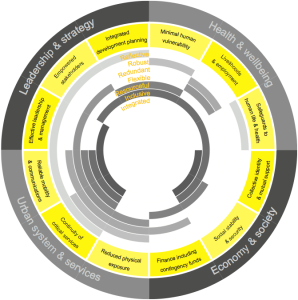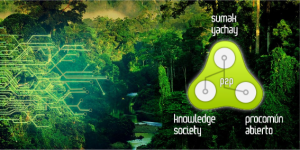
Transitioning to a Commons-Based Society
Background on the FLOK Project
Michel Bauwens:
The National Plan of Ecuador recognizes and stresses that the global transformation towards knowledge-based societies and economies requires a new form for the creation and distribution of value in society. The National Plan's central concept is the achievement of ‘Buen Vivir' (Sumak Kawsay) or ‘good living'; but good living is impossible without the availability of ‘good knowledge', i.e. ‘Buen Conocer' (‘Sumak Yachay'). The third national plan for 2013-2017 explicitly calls for a open-commons based knowledge society[1].
President Correa himself exhorted young people to achieve and fight for this open knowledge society[2].
The FLOK Society is a joint research effort by the Coordinating Ministry of Knowledge and Human Talent, the SENESCYT (Secretaría Nacional de Educación Superior, Ciencia, Tecnología e Innovación) and the IAEN (Instituto de Altos Estudios del Estado) to develop transition and policy proposals to achieve such an open commons-based knowledge society.
FLOK refers to:
Continue reading “Michel Bauwens: Transitioning to a Commons-Based Society”






